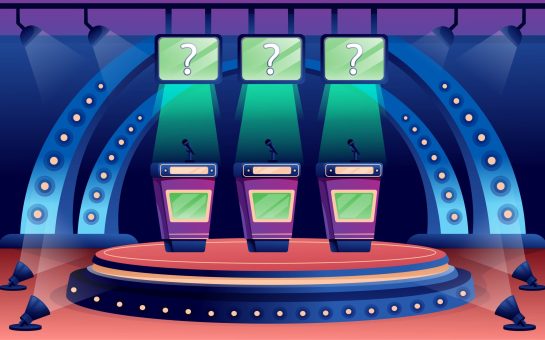Recognising your unique learning style is crucial to transforming study sessions.
Everyone processes information differently, whether through visual aids, auditory materials, or hands-on activities.
Identifying whether you are a visual, auditory, reading/writing, or kinaesthetic learner can help tailor study techniques to your strengths, making your sessions more productive and engaging.
Experiment with different methods to see what resonates best with you. For instance, visual learners might benefit from diagrams and charts, while auditory learners could gain more from listening to lectures or discussing topics.
Understanding and leveraging your learning preferences can lead to more effective and enjoyable study sessions.
Setting clear and achievable study goals
Establishing clear and achievable goals is a fundamental step in enhancing your study sessions.
Start by breaking down larger tasks into smaller, manageable objectives. This approach not only makes the workload seem less daunting but also provides a sense of accomplishment as you complete each smaller task.
For example, instead of aiming to master an entire subject in one sitting, focus on understanding specific chapters or topics.
To keep track of your progress, consider using tools such as planners or digital apps.
Setting deadlines for each goal can help maintain motivation and ensure you stay on track.
Remember to be realistic about what you can achieve within a given timeframe.
Overloading yourself with too many tasks can lead to burnout and decreased productivity.
By setting clear, attainable goals, you can approach your studies with a more structured and efficient mindset.
Time management techniques that maximise study
Effective time management is crucial for successful studying.
Begin by evaluating how you currently spend your time and identify areas where you can make adjustments.
Prioritising tasks based on their importance and deadlines can help ensure that you allocate your time effectively.
One popular method is the Pomodoro Technique, which involves studying for 25 minutes, followed by a five-minute break. This technique helps maintain focus and prevents fatigue.
Another useful strategy is creating a daily or weekly schedule.
Allocate specific time slots for studying, breaks, and other activities.
Be sure to stick to your schedule as closely as possible, but also allow for some flexibility in case unexpected events arise.
By managing your time wisely, you can reduce stress and increase productivity, making your study sessions more effective and enjoyable.
Finding study guides and lecture notes online
Accessing high-quality study guides and lecture notes can significantly enhance your learning experience.
Many online platforms offer a wide range of resources tailored to various subjects and academic levels.
These materials can provide additional explanations, practice problems, and summaries that complement your primary textbooks.
When searching for study guides, look for those that are well-organised and written by reputable sources to ensure their accuracy and reliability.
One of the most valuable resources for students is Studocu, which provides access to a vast collection of study notes, lecture notes, and other study materials.
By utilising such resources, you can gain different perspectives on complex topics and reinforce your understanding.
Incorporating these study guides into your routine can help you prepare more effectively for exams and improve your overall academic performance.
Incorporating diverse study materials into your routine can also expose you to different teaching styles and methodologies, which can be particularly helpful if you struggle with certain concepts.
By exploring various resources, you can find explanations that resonate with you, making difficult subjects more accessible and comprehensible.
Incorporating technology into your study routine
Integrating technology into your study routine can significantly enhance your learning experience.
Digital tools such as apps, software, and online resources offer various ways to organise and streamline your studies.
For example, note-taking apps like Evernote and OneNote allow you to create, store, and sync your notes across multiple devices, making it easy to access study materials anytime, anywhere.
Similarly, flashcard apps such as Anki help with memorisation by using spaced repetition techniques.
Online platforms also provide interactive learning experiences through videos, quizzes, and virtual classrooms.
Websites like Khan Academy and Coursera offer courses on a wide range of subjects, enabling you to learn at your own pace.
By incorporating these technologies, you can personalise your study sessions to fit your learning style and schedule, ultimately making your studies more efficient and engaging.
Balancing study and leisure for optimal performance
Maintaining a balance between study and leisure is crucial for optimal academic performance.
While it is important to dedicate time to studying, overworking yourself can lead to burnout and reduced productivity.
To avoid this, schedule regular breaks during study sessions. Short breaks can help refresh your mind and improve focus when you return to your studies.
Engaging in leisure activities that you enjoy, such as hobbies, exercise, or socialising with friends, can also contribute to your overall wellbeing.
These activities provide a much-needed mental break and can boost your mood and energy levels.
By finding a healthy balance between study and leisure, you can maintain a more sustainable and effective study routine.
The importance of regular breaks and healthy habits
Taking regular breaks during study sessions is crucial for maintaining focus and productivity.
Continuous studying without breaks can lead to mental fatigue, reducing your ability to retain information and stay engaged.
Implementing short breaks, such as a five-minute pause after 25 minutes of study, can refresh your mind and improve concentration.
These intervals allow your brain to rest and process the information you have just learned, making subsequent study periods more effective.
Adopting healthy habits plays a vital role in academic success.
Proper nutrition, adequate sleep, and regular physical activity can significantly enhance your cognitive functions.
A balanced diet fuels your brain, providing the necessary energy to think clearly and stay focused.
Ensuring you get enough sleep helps consolidate memories and improves problem-solving skills.
Regular exercise boosts your mood and increases blood flow to the brain, which can enhance your overall learning capacity.
By integrating regular breaks and healthy habits into your routine, you can maintain a high level of academic performance and well-being.
Transforming your study sessions requires a combination of understanding your learning style, setting clear goals, managing your time effectively, and incorporating technology.
Each of these elements plays a crucial role in enhancing productivity and ensuring academic success.
By adopting these strategies, you can create a more effective and enjoyable study routine.
Tailoring your approach to your personal preferences and needs ensures that you make the most of your study time, leading to improved academic performance and a more balanced lifestyle.




